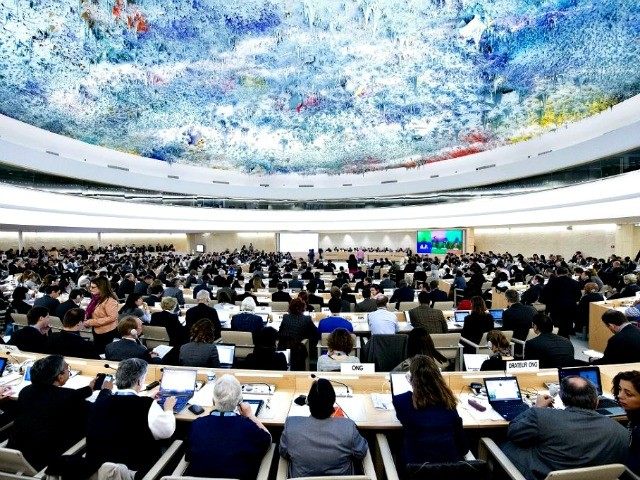TEL AVIV – The UN Human Rights Council is ignoring the fact that more than 40 European companies – most of which are under some degree of state control in their home countries – operate in four areas around the world deemed occupied by the United Nations even while the agency continues to boycott businesses that operate in Israeli settlements, a new report found.
Israel disputes the characterization that it is occupying territory in the West Bank or eastern sections of Jerusalem.
The UN report, authored by legal expert and Northwestern University Prof. Eugene Kontorovich on behalf of Israel advocacy groups Kohelet Policy Forum and NGO Monitor, highlighted “the world’s largest industrial, financial services, and other major publicly traded companies” that are operating in Moroccan-occupied Western Sahara, Turkish-occupied Northern Cyprus, Armenian-occupied Nagorno-Karabakh and Russian-occupied portions of Ukraine.
In March 2016, the UNHRC adopted a resolution aimed at boycotting companies that conduct business in the settlements. The ensuing boycott list is, in Kontorovich’s words, “far too narrow in its scope, and fails to capture the full context and magnitude of business activities that support settlement enterprises in occupied territories.”
He added that by singling out Israel, the list “undermines both [its] legal and practical value.”
Kontorovich presented his report to the UNHRC at a session in Geneva last month, but the Council has yet to issue a response.
The report also highlighted several other territories around the world considered to be “under belligerent occupation, where the occupying power has … facilitated the movement of settlers.”
“In all these cases, this is done over the vigorous objection of the occupied party and is at odds with its sovereignty or self-determination,” the report continues.
The Jerusalem Post contacted three multinationals – Orange S.A., Veolia Environmental and Renault – named in the report as operating in occupied territories. Orange and Veolia maintained that their activities are legal while Renault declined to comment.
The report also said that many of the 44 companies listed “have significant links to governments of their home countries, often being partially owned or controlled by the state.”
Kontorovich called on the UNHRC to stop adopting a double standard, and either begin penalizing companies that do business in all occupied territories or cease singling out Israel.

COMMENTS
Please let us know if you're having issues with commenting.